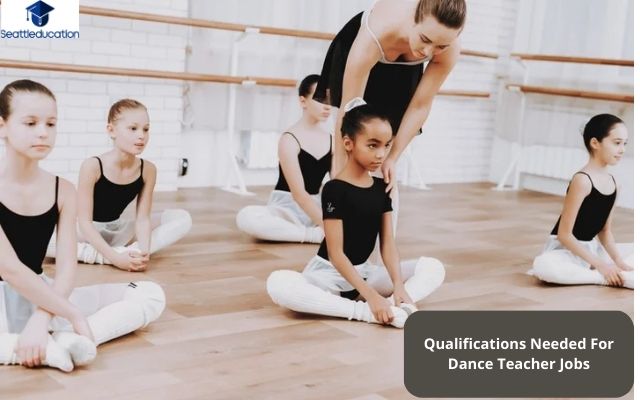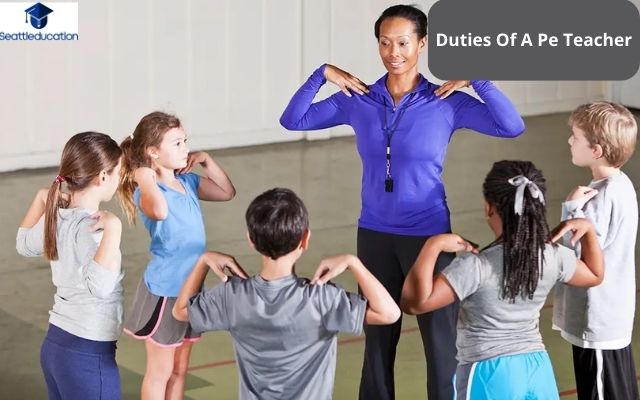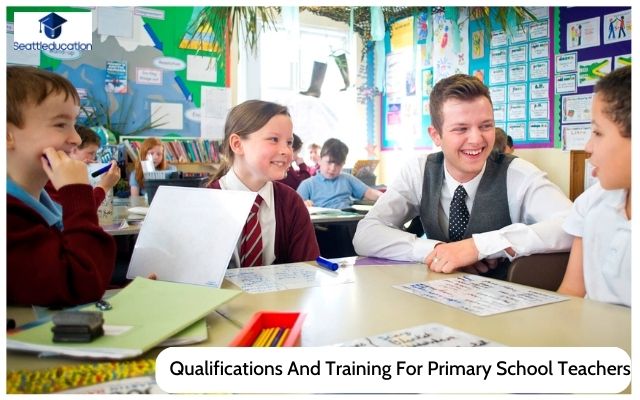Teacher Career Qualifications: The Ultimate Evaluation 2023
Teacher Career Qualifications: Being a teacher is one of the most important and rewarding jobs out there. It requires passion, commitment and great qualifications to ensure success in any teaching environment.
In this article, we’ll be looking at what it takes to become a qualified teacher, exploring the different educational requirements needed for a successful career in teaching. We’ll also look at how these qualifications can equip teachers with the necessary skills they need to excel in their chosen field.
Let’s get started!
College Degree
Having a college degree is an important qualification for becoming a teacher. A degree shows that the individual has obtained a broad range of knowledge, and it also demonstrates to employers that they have the necessary skills and qualifications to be successful in their role. It’s also essential to note that many school districts require teachers to hold at least a bachelor’s degree from an accredited institution.
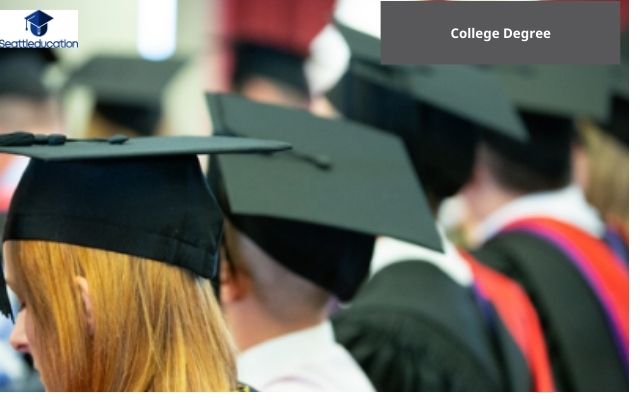
Furthermore, having a college degree opens up doors for pursuing higher-level teaching positions, such as those found within special education or administration roles. Even if someone does not have any prior experience working with children or teaching classes, having a college degree can provide them with some basic knowledge about child development and classroom management strategies needed for success.
In addition, continuing education opportunities are available to individuals who possess a college degree, which allows them to stay current on new advancements in educational theory and practice. All these factors make obtaining a college degree imperative when looking into teacher career qualifications.
Teaching License
Teaching is a rewarding and challenging career, but it also requires qualifications that must be obtained before one can become an effective teacher. A teaching license is one of the most important requirements for becoming a qualified teacher.
A teaching license indicates competence in educational practice and professional knowledge, which are both necessary to become an effective educator:
– Passing a state approved exam
– Meeting specific coursework requirements
– Completing supervised field experience
– Demonstrating proficiency in basic skills tests
– Maintaining continuous certification through professional development activities
Having these prerequisites allows teachers to demonstrate their ability to create meaningful learning experiences for students, thus enabling them to effectively deliver instruction. Therefore, obtaining a teaching license is essential for any aspiring educators who want to pursue this career path.
Subject Matter Certification
In order to truly succeed as a teacher, there are certain qualifications that must be met. One of the most important is subject matter certification; this enables educators to teach specific types of courses within an educational institution.
Below is a table showing the different levels of qualification required for teaching at various grade levels:
| Primary Level (K-5) | Secondary Level (6-12) | Higher Education (13+) | |
| Minimum | Bachelor’s Degree | Master’s Degree | Doctoral Degree |
| Preferred | Teacher Certification Certificate | Specialized Professional License or Endorsement | Postgraduate Qualification |
For teachers looking to move up in their career, it is essential to obtain higher level certifications and qualifications so they can compete for positions beyond their current roles. With the right combination of education and experience, any teacher can become successful in their chosen field.
Grade Level Certification
Subject matter certification is an essential component of preparing a teacher for the classroom. This type of certification demonstrates that a teacher is qualified to teach in their field, or subject area. It also shows they have met the requirements necessary to be accepted into higher education courses and programs.
Grade level certification follows on from subject matter certification, taking it one step further. Grade level certifications represent an understanding of educational standards across all grade levels in order to effectively communicate with students at any age group.
To obtain this certification, teachers must demonstrate proficiency in content such as:
– *Content Knowledge*: An ability to understand the core curriculum being taught at each grade level and how it relates to other subjects when combined;
– *Instructional Strategies*: Familiarity with different instructional strategies appropriate for each grade level, such as inquiry-based learning and cooperative learning;
– *Assessment Practices*: Knowing different assessment practices like formative assessments, summative assessment and rubrics used within each grade level.
This knowledge allows educators to better meet the needs of their students by using evidence-based teaching methods tailored specifically for the student’s academic makeup. With both subject matter and grade level qualifications in hand, teachers can confidently enter any classroom setting confident that they are prepared to provide quality instruction.
Knowledge Of Subject
Having a strong knowledge of the subject is an essential part of being a successful teacher. Effective teachers have an in-depth understanding of their curriculum, and are able to identify gaps or weaknesses that need to be addressed for student success. This ability requires not only familiarity with the material but also experience working with it and teaching it.
| Knowledge | Experience | Communication |
| mastery | pedagogy | public speaking |
| content | practicality | guidance |
| facts | assessment | coaching |
| theories | collaboration | facilitation |
To gain expertise in any field, certain skill sets must be developed: knowledge, experience, and communication. Teachers should strive to master their course content through research and study; they should also develop practical experiences via hands-on activities such as assessments, collaborations, and guidance.
Finally, they must acquire the necessary communication skills like public speaking, coaching, facilitating conversations between students etc., in order to effectively share this knowledge with others. In sum these three pillars serve as foundations upon which effective teachers build their careers.
Effective Communication Skills
Having a thorough understanding of the subject matter is essential for any teacher, but it’s not enough to be successful in their career. Equally important are effective communication skills that allow them to connect with students and colleagues alike.
These skills include:
– Being able to articulate thoughts clearly and concisely
– Being an active listener who can pick up on verbal and nonverbal cues from others
– An ability to maintain strong relationships through empathy and respect
– Demonstrating confidence when speaking or teaching a lesson
– Adapting quickly to different situations or environments
To achieve success as a teacher, these skills must all work together in unison. A good teacher must be knowledgeable about the content they’re teaching, communicate effectively with those around them, build meaningful relationships, show self assurance, and have the flexibility to make changes when needed.
All this will help ensure that teachers are prepared for whatever challenges may arise throughout their careers.
Ability To Create Positive Learning Environment
Creating a positive learning environment is an essential attribute for any teacher. This means creating a classroom atmosphere that encourages students to be engaged, active and open-minded. An effective teacher should ensure their students feel respected and cared for, while also establishing clear expectations of behavior and performance in order to create a productive space for learning.
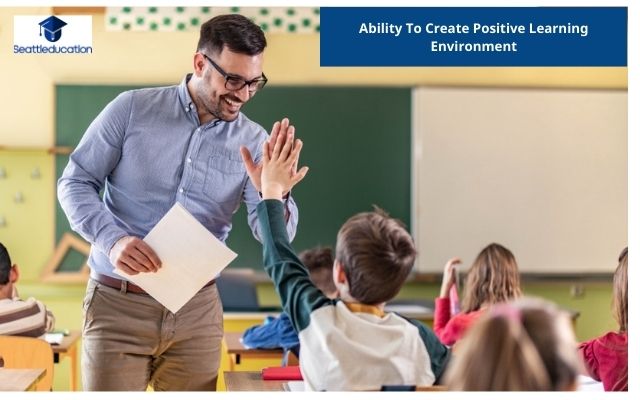
To achieve this goal, it is important for teachers to have excellent communication skills. They must be able to articulate instructions clearly, but also listen actively when engaging with their students.
A good rapport between the student and teacher can go a long way in helping maintain a healthy classroom dynamic; by understanding each other’s needs and feelings, both parties will be better able to express themselves without fear of judgment or criticism. Ultimately, this will result in more successful outcomes for all involved.
Classroom Management Skills
Creating a positive learning environment is paramount for any teacher. It allows students to feel encouraged and engaged, which in turn facilitates their educational development. Building on this foundation of positivity, teachers must also possess the skills necessary to effectively manage their classroom.
This means being able to create an orderly setting where students can learn without disruption or distraction. Good classroom management involves understanding how people learn best and tailoring instruction; accordingly, it necessitates strong communication with both students and parents; and it requires establishing clear expectations that promote respect among all those involved in the classroom setting.
In addition, teachers should be familiar with behavior modification techniques that may need to be employed if needed while maintaining a safe learning space. All these components are essential when managing a successful classroom.
Teachers who display effective classroom management skills demonstrate confidence while projecting calmness as they navigate challenges presented by different student personalities, backgrounds and abilities. They cultivate relationships based on trust, mutual respect and accountability—all of which play an integral role in helping students reach their academic goals.
With well-planned lessons, organized materials, firm yet fair discipline strategies, appropriate use of technology, and plenty of encouragement along the way, teachers have the power to help shape tomorrow’s future leaders today.
Curriculum Development
As a teacher, curriculum development is an essential part of your career qualifications. It’s not just about teaching the material; it’s also about engaging students and helping them understand the content in meaningful ways.
Here are five key elements to consider when developing curriculum:
– Content knowledge: Make sure you have a deep understanding of the subject matter that you’re teaching.
– Student engagement: Create activities and assignments that actively engage students with the material.
– Critical thinking skills: Foster student inquiry by encouraging them to form their own opinions and debate different points of view.
– Assessment strategies: Develop assessments that accurately measure student learning and provide feedback for improvement.
– Technology integration: Incorporate technology in lessons whenever possible to make learning more accessible and interactive.
With these components in mind, teachers can create effective curriculums that move beyond traditional methods and equip students with the necessary skills for success in today’s world. This requires a strong sense of creativity as well as dedication to providing quality instruction every day.
Technology Proficiency
Having a thorough understanding of curriculum development is essential for teachers. Moving on from this, technology proficiency is also an important part of any teacher’s career qualifications. In order to stay up-to-date in the ever-changing digital world and provide students with the best learning experience possible, teachers need to have knowledge and comfortability using different types of classroom tools.
The table below outlines various tech skills that are beneficial for teachers:
| Skill | Description | Examples |
| Computer Proficiency | Mastery of basic computer operations including file management, programs, emailing & internet usage | Word processing, spreadsheets, presentation software (PowerPoint), web browsers, operating systems (Windows/Mac OS) |
| Online Learning Platforms | Ability to use online platforms such as Google Classroom or Edmodo | Creating assignments & tests; grading student submissions; providing feedback & resources; creating discussions boards; managing groups within classes |
| Educational Software | Knowledge of specific educational applications used in the classroom | Interactive whiteboard software (eBeam); gradebooks (Aeries); 3D printing technologies; programming languages like HTML5/Javascript |
| Video Conferencing Tools | Understanding how to set up virtual meetings with colleagues & students | Zoom; Skype for Business; Microsoft Teams; Google Hangouts Meet |
With these abilities, teachers can confidently manage their classrooms through digital means and ensure each student has access to quality education. As technology advances and new trends emerge, it’s imperative that educators stay updated so they can effectively utilize all available resources in their teaching process.
Understanding Of Different Learning Styles
Understanding different learning styles is an important part of being a successful teacher. Different students have different strengths and weaknesses, so it’s important to be able to recognize what type of instruction will work best for each individual student.
As a teacher, it’s essential that you are familiar with the various types of learning styles, such as auditory, visual, and kinesthetic learners. You should also be aware of strategies that can help those who struggle in certain areas or those who excel quickly.
It’s equally important to remember that all students learn differently, no matter their age or ability level. Being knowledgeable about these various learning styles helps teachers tailor their lesson plans in order to maximize effectiveness and make sure all students are receiving the same quality education regardless of their learning style preference.
Furthermore, having an understanding of how different teaching approaches may affect a student’s performance allows educators to better gauge which methods they should use when delivering content and providing feedback.
By taking into account the preferences of individual students and utilizing effective teaching strategies appropriate for each learner, teachers can ensure every one receives the best possible educational experience.
Interpersonal Skills
To be an effective teacher, understanding the different learning styles of students is important. However, being able to communicate effectively with those same individuals is just as crucial for success in the classroom. Interpersonal skills such as active listening, empathy and patience can go a long way towards creating a positive atmosphere and facilitating successful student-teacher interactions.
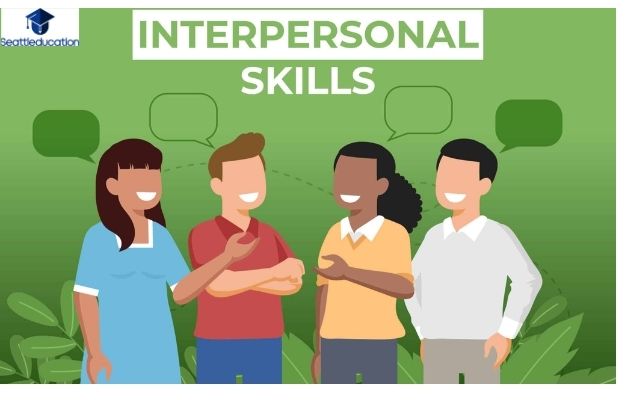
Good interpersonal skills are essential for teachers when it comes to building relationships with their students:
- Being open-minded and willing to listen to what students have to say will help create trust between both parties.
- Showing respect and appreciation for diversity among your students helps foster acceptance within the group.
- Demonstrating patience allows everyone involved time to process information properly without feeling rushed or overwhelmed by expectations that may be too high.
- Having good communication skills means not only being able to answer questions but also asking them in order to better understand each individual’s needs.
Teachers must strive not only to become knowledgeable on various topics but also build strong relationships with their students, so they feel comfortable enough to ask questions and seek help when needed. In doing so, teachers can provide a safe space where meaningful conversations about various topics can take place – something which ultimately leads to greater academic growth for all involved.
Conclusion
In conclusion, it is clear that teachers must be continuously evolving to meet the needs of students. They should take advantage of educational resources and professional development opportunities to stay informed on best practices in their subject area.
Additionally, they should strive to develop a deep understanding of different learning styles and technology proficiency for their role. By taking steps such as these, teachers can ensure they have the necessary qualifications to advance in their career and make an impact in classrooms around the world.

